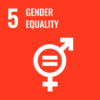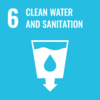Weather monitoring stations supported by Nitlapan-UCA was born in 2019. This network is made up of volunteers who daily record climate data about the rain, temperature, humidity and dew point with manual instruments such as the pluviometer and hygrothermometer. The data collected is used for three things. Firstly, with the data, the Nitlapan team gives sound recommendations for agriculture and livestock. Secondly, the data is analysed by a team and prepares an informative note and recommendations for farmers, which is shared on social medias (WhatsApp and Facebook). Thirdly, with the data collected during the current year and previous years, work sessions are held between the network of climate monitors, the Nitlapan team, and climate specialists.
The climate data analysis is complemented with climate bioindicator data (behaviour of plants, animals, wind, clouds, the moon, the sun, the rainbow, etc.) that have been used by farmers to understand and make climate decisions for centuries.
This is a fantastic community-based, action research initiative, in a vital area of work. Although not yet fully linked to how the university will itself achieve net zero or a true whole institution approach we all felt this project deserved special recognition. Well done!
“For us as Nitlapan, winning this International Green Gown Award means recognition of the grain of sand that we contribute as an institution to the rural communities of Nicaragua. Likewise, it means recognition of the results of collaborative work, of local inter-knowledge and environmental justice that we promote in the institution”.
Manuel Bermudez



